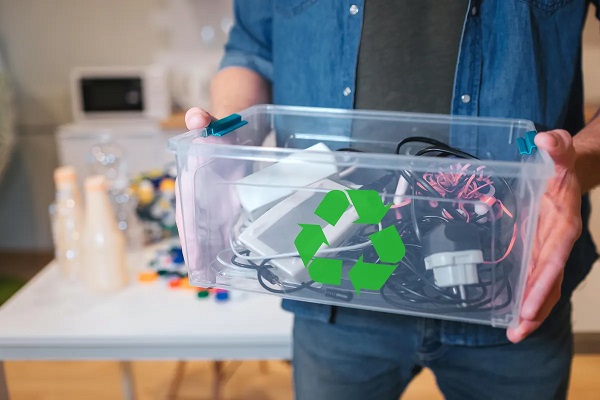
In the realm of electronic waste, or eWaste, businesses face potential risks and liabilities. Despite preventive measures, incidents can occur, leading to financial losses and damages. This article explores the process of eWaste insurance claims, focusing on compensation and recovery, and highlights the importance of understanding the claims process to protect businesses in the event of eWaste-related incidents.
Reporting the Incident:
When an eWaste-related incident occurs, the first step in the insurance claims process is to report the incident to the insurance provider. It’s crucial to notify the insurance company promptly to initiate the claims process. Provide detailed information about the incident, including the nature of the incident, the extent of damages or losses, and any relevant documentation or evidence supporting the claim. Timely reporting ensures that the insurance provider can begin assessing the claim promptly.
Insurance Claims Assessment:
After receiving the claim, the insurance company will initiate an assessment process. This typically involves gathering information and evidence related to the incident. The insurance adjuster may request additional documentation, such as photographs, invoices, or expert reports, to support the claim.
The assessment may also include on-site inspections or interviews to validate the extent of damages or losses. The insurance company will review the claim in accordance with the policy terms and conditions to determine coverage and the amount of compensation.
Determining Coverage and Compensation:
The insurance company will evaluate the claim based on the coverage provided by the eWaste insurance policy. Different types of coverage, such as pollution liability, data breach liability, or professional liability, may apply depending on the nature of the incident.
The insurance provider will assess the policy limits, deductibles, and exclusions to determine the extent of coverage. Once the coverage is established, the insurance company will calculate the compensation amount based on the incurred damages, losses, or expenses outlined in the claim.
Negotiating and Settlement:
During the claims process, there may be negotiations between the insured business and the insurance company regarding the compensation amount. The insured business can provide additional documentation or evidence to support their claim and negotiate for a fair settlement. It’s essential for businesses to maintain open and transparent communication with the insurance adjuster and be proactive in providing requested information. Negotiations may involve back-and-forth discussions to reach a mutually acceptable settlement.
Claim Approval and Disbursement:
Upon reaching a settlement, the insurance company will approve the claim and initiate the disbursement of the compensation amount. The process of claim approval varies among insurance providers and may involve additional administrative steps, such as signing release forms or providing proof of compliance with policy requirements. Once the claim is approved, the insurance company will disburse the compensation to the insured business, providing the necessary financial recovery to mitigate the losses incurred from the eWaste-related incident.
Conclusion:
Navigating the eWaste insurance claims process is crucial for businesses to recover from eWaste-related incidents. By promptly reporting the incident, providing accurate information, and understanding the coverage and compensation aspects of the policy, businesses can ensure a smooth claims process. Effective communication and collaboration with the insurance provider are key to reaching a fair settlement.
Obtaining proper eWaste insurance coverage and being familiar with the claims process can help businesses protect their financial well-being and recover from the potential damages and losses associated with eWaste incidents.